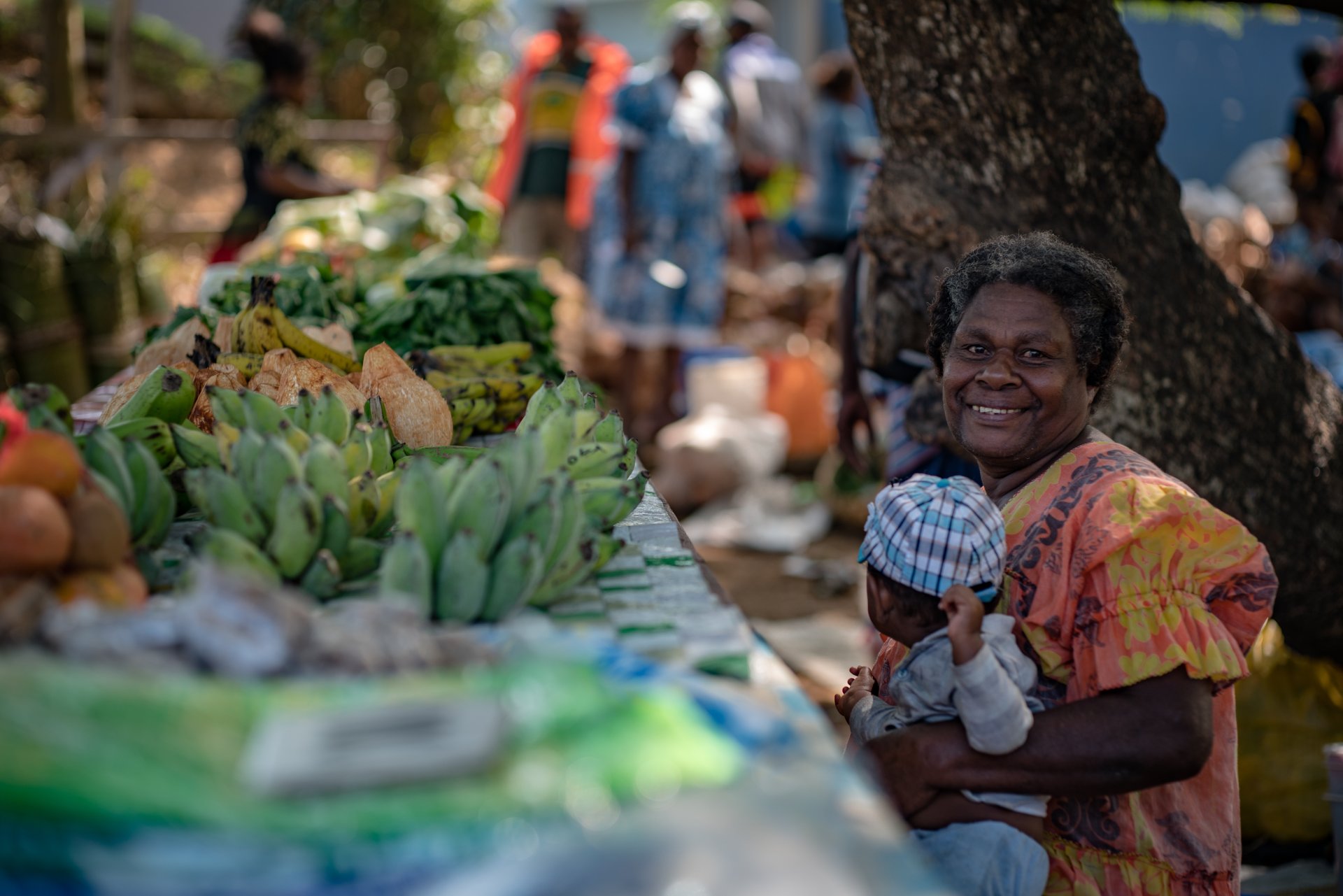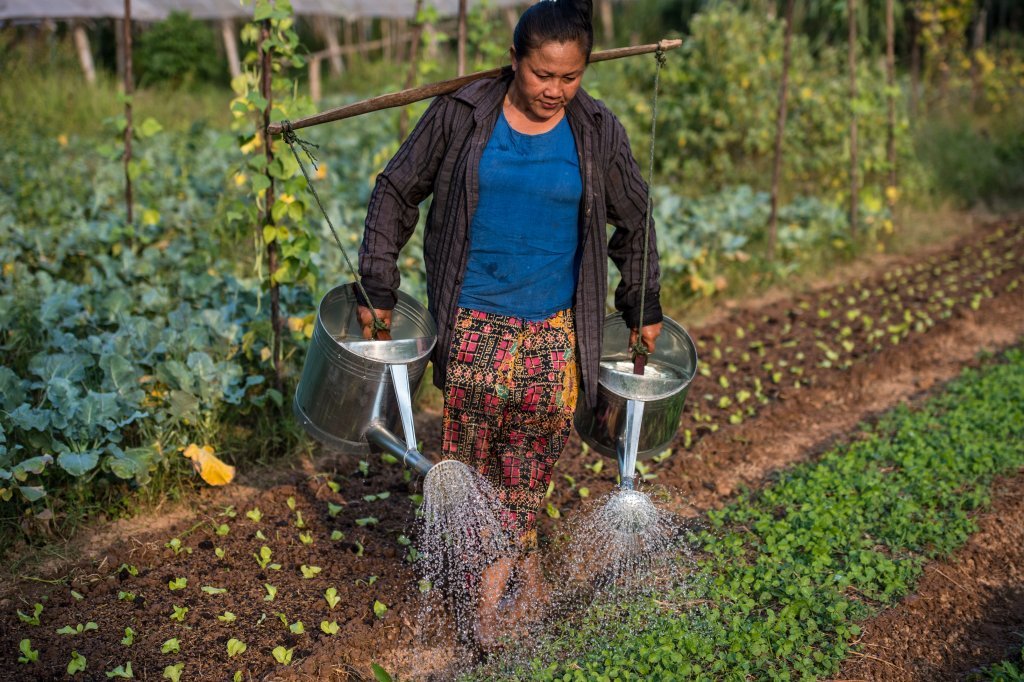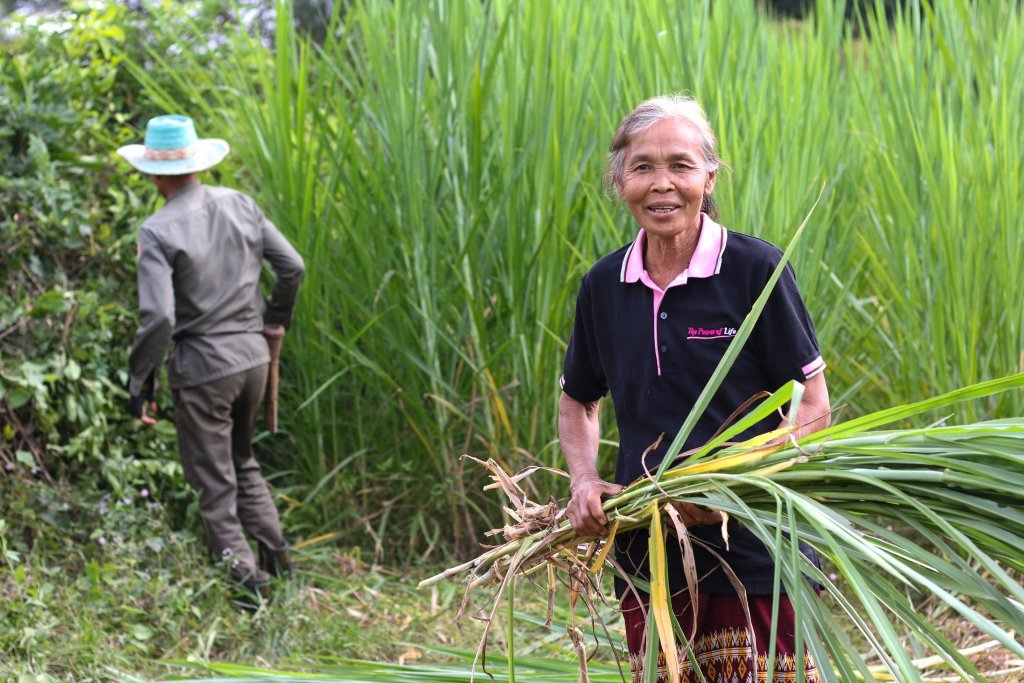CRPP's gender window secures funding for women in Asia and the Pacific
 Gender equality needs more climate finance than is currently allocated globally. Photo: Asian Development Bank
Gender equality needs more climate finance than is currently allocated globally. Photo: Asian Development Bank
Women and girls are bearing the brunt of the climate crisis, especially in the lower-income countries. However, women in local communities are in the frontlines of fighting climate change and finding solutions that are suitable for local needs. Unfortunately, only a small percentage of global climate finance prioritises gender equality and locally led actions, and women’s organizations are not being funded enough for their transformative work in climate adaptation, which CRPP is addressing.
This year’s theme for International Women’s Day highlights the need and potential of providing climate finance to women. NDF stresses the importance of gender equality in all projects that it invests in, but also recognises women as agents of change in their local communities. Building on this understanding, NDF has provided financing for the Community Resilience Partnership Programme (CRPP) that is implemented by the Asian Development Bank (ADB). The programme aims to strengthen climate resilience of countries and communities in Asia and the Pacific through scaling up climate adaptation measures, especially at the community level that address the nexus between climate change, gender and poverty.
The CRPP is an innovative initiative, which addresses gaps in terms of climate resilience in the region. The programme highlights the urgent need for locally led solutions and climate resilience measures, especially for people in vulnerable situations and who live in poverty. Most importantly, it aims to ensure community resilience that is inclusive and gender responsive.
This 10-year initiative consists of an Investment Fund and a Trust Fund, where NDF has provided a grant of EUR 6 million. Given NDF’s strong focus on gender equality, one third of the NDF grant goes to CRPP’s dedicated window on gender, which aims to finance women-led projects or projects that benefit women in the communities.
Ensuring climate financing for women
CRPP’s gender window is unique and aims to empower women’s organizations in the region by supporting their initiatives from planning, design, implementation to monitoring and evaluation. Working throughout the project cycle ensures that solutions are truly locally led, focused on women’s needs and knowledge, and beneficial for local communities.
According to IIED, only 10% of global climate finance goes to local communities. Yet, there is an urgent need for communities and countries to adapt to the disastrous consequences of climate change. The amount of already existing climate finance is already low, and the resources going to women’s organizations and gender equality in this context is even lower.
“CRPP’s gender window is a response to try to address the lack of funding to gender equality. I think that often there’s an assumption that if we are working on climate adaptation, it is automatically inclusive or has direct benefits to women, but that’s not always the case. The gender window is a vehicle of being intentional in putting financial resources to grassroots women’s hands,” says Zonibel Woods, Senior Social Development Specialist from the Asian Development Bank.
Building relevant skills for climate resilience
Learning and building relevant skills to adapt to climate change is crucial, especially in the sectors of the green economy, such as in agriculture, renewable energy and water management. Unfortunately, women are underrepresented in green jobs in the region. To find climate solutions, we need to have women and men on board, and this can be achieved by investing in building relevant skills for climate resilience.
“Most of Asia and the Pacific is still on informal economies and we see a significant amount of entrepreneurship. However, there is not enough training or skills-building for what is necessary for a climate-resilient world, which CRPP is trying to address. When speaking about technical vocational training, women are often forced to be trained in traditional businesses for women, such as sewing. Yet, they are not given the same opportunities to learn about agriculture or entrepreneurship. This puts women on a different pathway to understand how to thrive in the climate crisis that we have in front of us,” says Nisha Krishnan, CRPP Trust Fund Manager from the Asian Development Bank.
On an annual basis, the Asian Development Bank hosts the CRPP Partnership Forum, where financing partners, community leaders, government officials and climate funds gather to discuss important themes of the programme, such as building skills, particularly to enhance gender equality. During this year’s Forum, we heard inspiring examples from communities in Vanuatu, Papua New Guinea, Lao PDR and Indonesia.
The discussions were diverse and perspectives from the grassroots were heard, such as from Syarifah Anggreinni, Grassroots Leader of YAKKUM Emergency Unit in Indonesia and member of the Huairou Commission.
She explained how women were able to access climate funding and strengthening their capacity: “For example, in the rural areas, there are women groups practicing and learning how to make bio-pesticide. In 2020, they received a grant to build their capacity in this and share their knowledge to other community members and farmers in the area.”
The programme is designed to find local solutions to the climate crisis, which is already showing its face in many areas in the region. “What we are trying to solve here is ambitious and complex, so we are depending on our capability to gather partners around the table and ensure that we are pulling in the same direction, to listen what all stakeholders have to say and incorporate the lessons learned to the programme,” says Jacob Lorentzen, who manages CRPP at NDF.

Women farmers learn valuable skills for climate resilience. Photo: Asian Development Bank
Partnerships for climate action
NDF was the first donor to fund this initiative and has since then been joined by other financing partners, including Agence Française de Développement (AFD) and the Government of the United Kingdom, through its Foreign, Commonwealth, and Development Office (FCDO). Additionally, important knowledge partners of the programme are the Institute for Environment and Development (IIED) and the Huairou Commission.
“The best thing about working with a partner, such as NDF, is the ability to recognize and bring in the perspective of promotion of gender equality, reducing gender gaps and working on climate change and poverty,” says Zonibel Woods from ADB. “Having a partner that understands the importance of addressing the social, the economic and the environmental aspects as a package is important, because you also push us in our work to do better in this regard.”

Phengsy Sipasert gathering grass for her cattle in Vientiane province. Photo: Asian Development Bank
